Question And Answer
Publications
Articles, publications, books, tools and multimedia features from the U.S. Institute of Peace provide the latest news, analysis, research findings, practitioner guides and reports, all related to the conflict zones and issues that are at the center of the Institute’s work to prevent and reduce violent conflict.
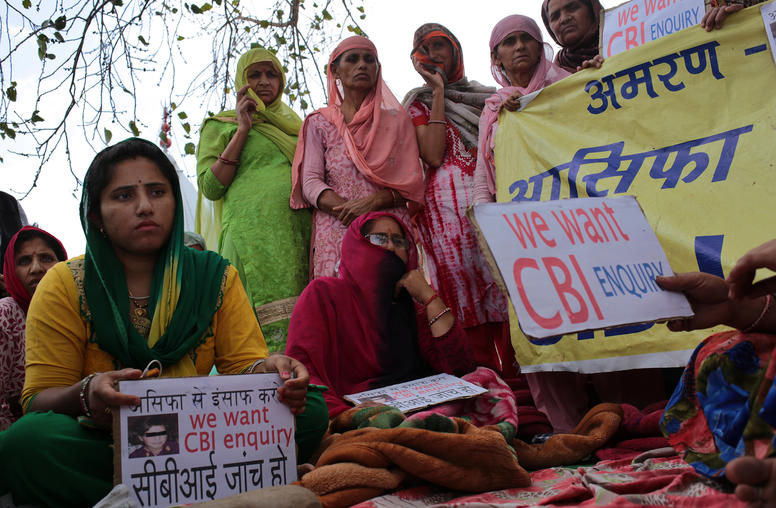
To Build Peace, Boost the Women Who Lead the Movements
Images of this year’s grassroots movements for social and political change—such as the ouster of authoritarian rulers in Sudan and Algeria—reiterate that women worldwide are driving campaigns that can strengthen democracy and reduce violent conflicts. Yet 20 years after the United Nations proclaimed the need for women at the center of the world’s peacebuilding and stabilization efforts, they remain marginalized in those official processes. So when USIP and a program at the University of Denver organized a training initiative this summer for 14 women leading civic movements for social change, a message glared from the mountain of nominations received from experts and groups working on the world’s violent crises.
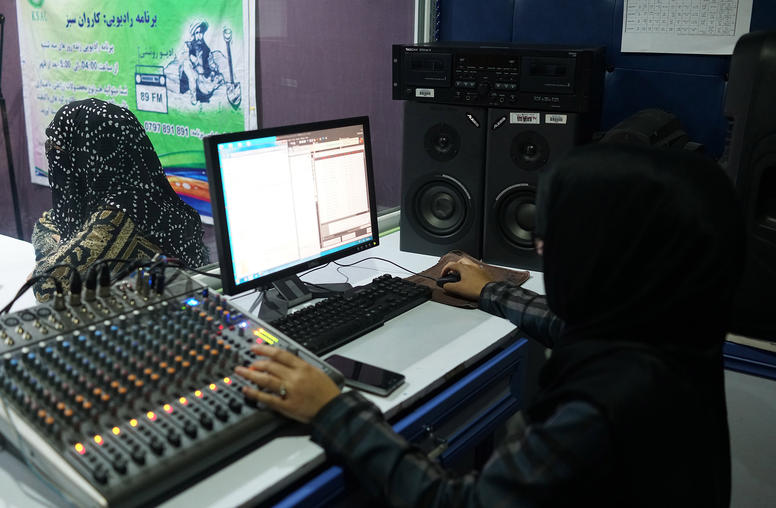
How Women Are Using Technology to Advance Gender Equality and Peace
From Afghanistan to Sudan, women in conflict areas are increasingly turning to technology to build peace and reduce gender inequality. Just as smart phones and mobile internet facilitate key functions of daily life, they also bring the world women’s voices once confined to the home or marketplace. It is a development with tremendous promise that the international community needs to support by widening access to technology, reducing social barriers to it and providing training that boosts proficiency.

Kathleen Kuehnast on Women in Conflict Zones
At a recent USIP event, Nobel laureate Nadia Murad discussed her efforts to end sexual violence and human trafficking—two criminal practices that Kathleen Kuehnast says “have been institutionalized and militarized.” To disincentivize these human rights abuses, Kuehnast says we must reinforce that these heinous but often lucrative practices are “not a livelihood—this is criminality.”
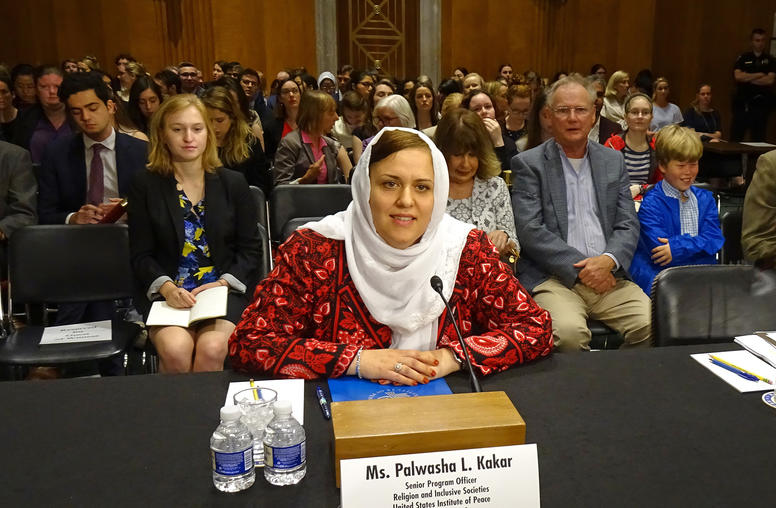
Women in Conflict: Advancing Women’s Role in Peace and Security
Palwasha Kakar, senior program officer for religion and inclusive societies, testified on June 13 at the Senate Foreign Relations Subcommittee on Western Hemisphere, Transnational Crime, Civilian Security, Democracy, Human Rights, and Global Women’s Issues' hearing on "Women in Conflict: Advancing Women's Role in Peace and Security.” Her expert testimony as prepared is presented below.
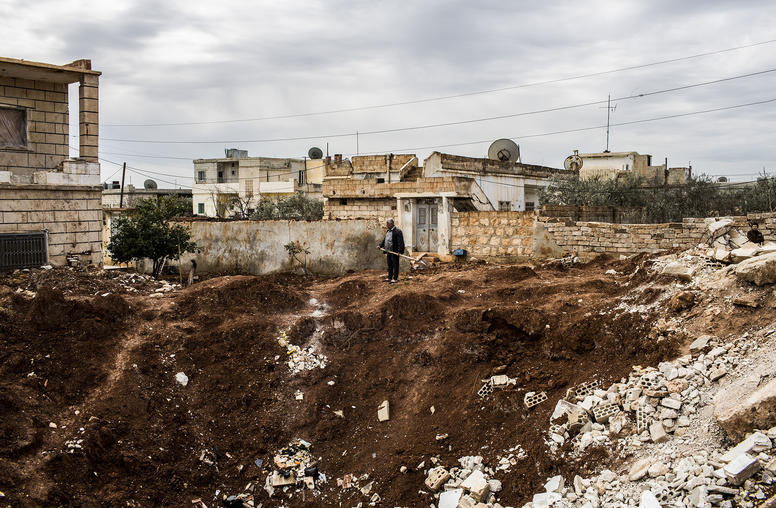
Syria’s Ghalia Rahal: Surviving War, Building Peace
Amid the traumas of Syria’s war, women like Ghalia Rahal are building an unprecedented role in peace talks over their country’s future. Rahal—the founder of a network of women’s centers in northwest Syria—has helped energize a Syrian women’s movement despite threats from extremists, attacks on her workplaces, and the assassination of her son, a journalist. Now, Rahal and her women’s network in Syria’s Idlib Province face an extreme threat—the Syrian government military offensive against the province that has killed hundreds and displaced nearly 200,000 people.

Belquis Ahmadi on the Afghan Peace Process
Reflecting on recent conversations in Doha and Kabul, USIP’s Belquis Ahmadi says that Afghans told her they want peace, but are not willing to sacrifice the hard-won gains of the last 18 years to get there. As U.S.-Taliban talks move forward, the extent of the Taliban’s evolution on issues like women’s rights remains in question. “I’ll believe it when I see it,” says Ahmadi.
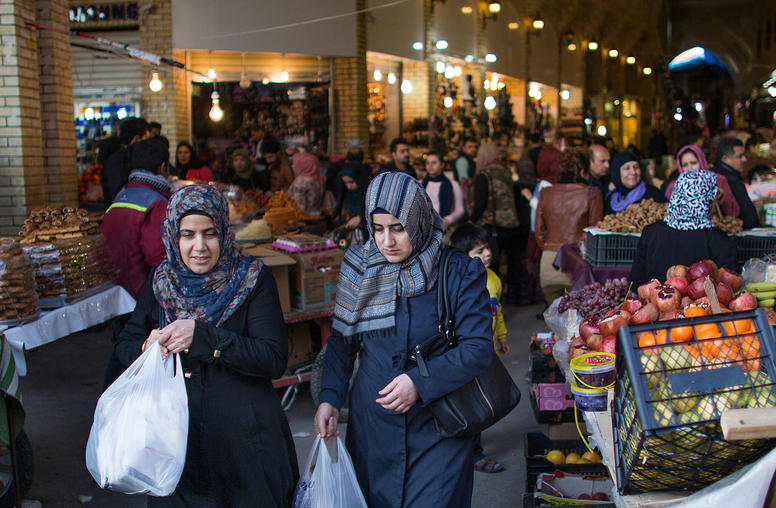
Reaching a Durable Peace in Afghanistan and Iraq: Learning from Investments in Women’s Programming
USIP recently partnered with New America to convene roundtable discussions with government, civil society, and humanitarian, development, and peacebuilding organizations to learn from the past decade of women’s programming in fragile states such as Iraq and Afghanistan. Based on these discussions, this report provides guidance for improving future programming to not only integrate the needs of women but also recognize the role women play in transforming violent conflict and sustaining a durable peace.
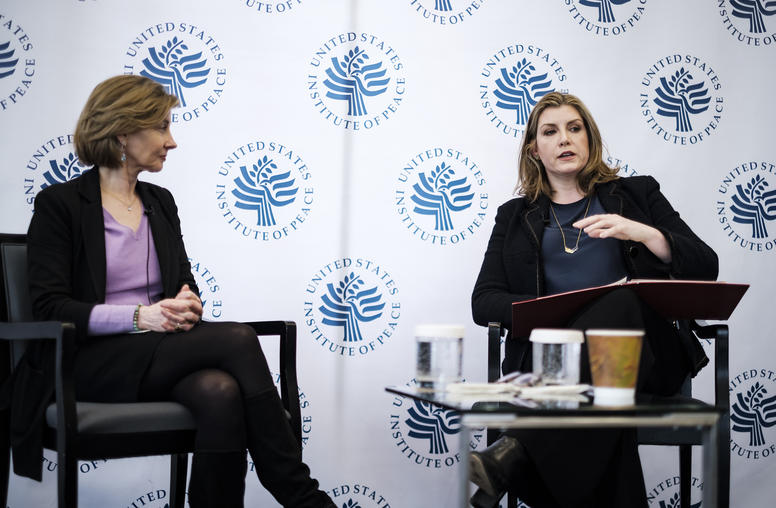
U.K. Secretary Talks History, Equality on International Women’s Day
This year marks a full century since American women won the right to vote, lending particular resonance to 2019’s International Women’s Day. For USIP President Nancy Lindborg and her guest, Penny Mordaunt, the U.K. secretary of state for international development and minister for women and equalities, the March 8 celebration was an ideal moment to reflect on women’s progress in their countries and globally and to highlight remaining obstacles to women’s full participation in society.
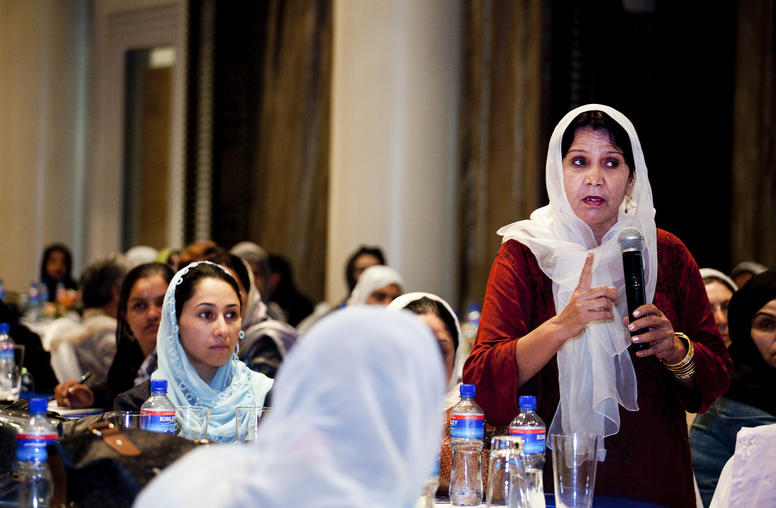
Afghanistan Talks: No Women, No Peace
As talks between the U.S. and the Taliban raise hopes for peace in Afghanistan, the country’s women fear another—and related—possibility: That their hard-won rights to participate in the nation’s political and economic life could again be washed away by the Taliban’s rigid views on gender.
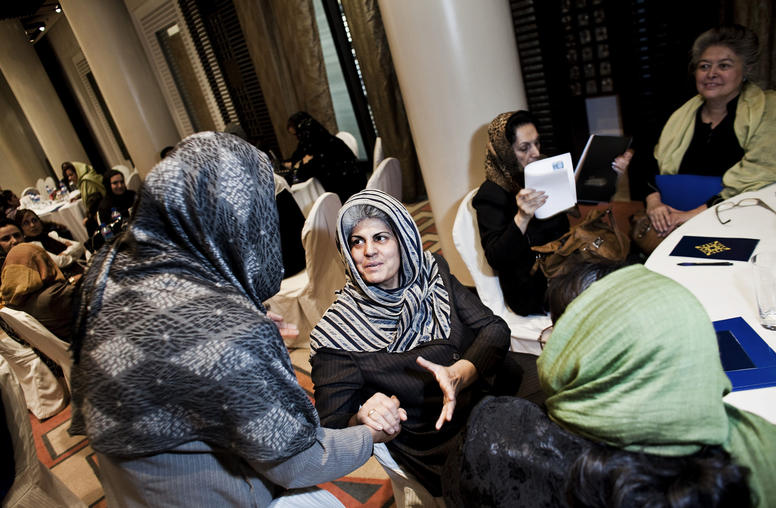
How can we negotiate with the Taliban? Afghan women know.
Afghan political leaders met in Moscow this week with Taliban representatives amid new momentum in diplomatic efforts to end Afghanistan’s war. Like other recent discussions, including those between U.S. envoy Zalmay Khalilzad and Taliban representatives in Qatar, Afghan women remain almost entirely excluded. Yet mostly unnoticed amid the formal diplomacy, Afghan women at their country’s grass roots already have managed negotiations with local Taliban leaders.